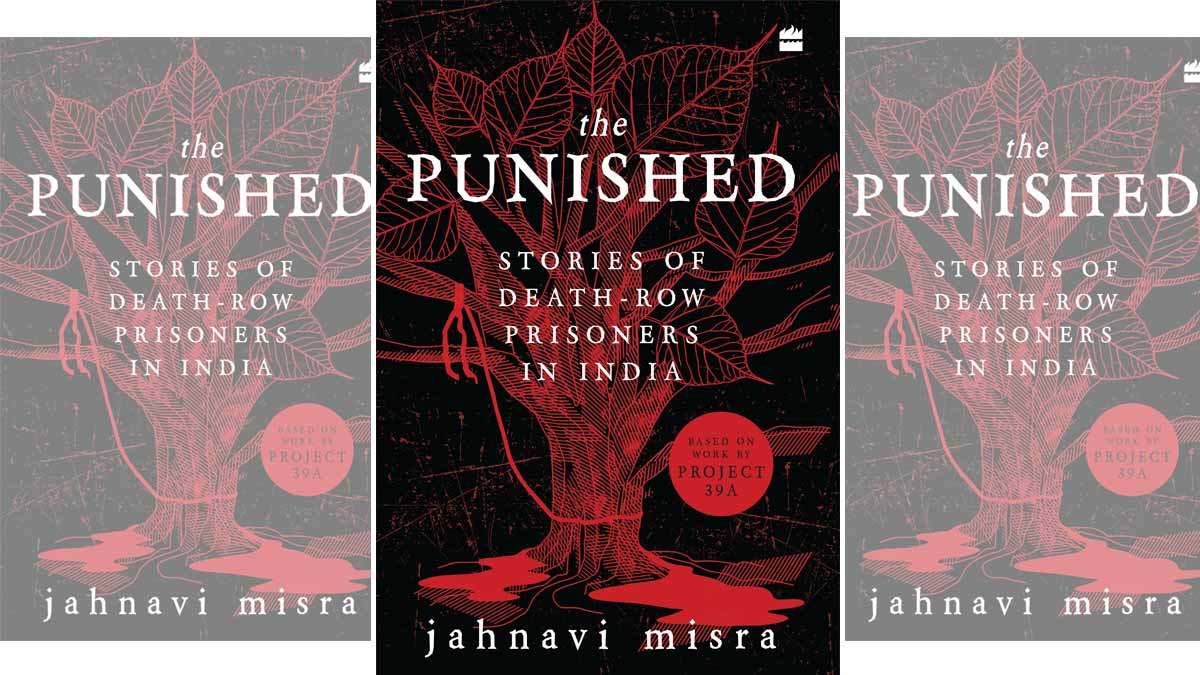Frontlist | Book review: 'Punished,' stories of death row prisoners
Frontlist | Book review: 'Punished,' stories of death row prisonerson Feb 26, 2021

A new book documents the stories of 19 individuals on death row, detailing how their families try to cope, as well as how the legal system fails to help them understand and prepare for their situation
It’s as though they had hoped for a different life after their crimes, but not the one in which they end up in prison. At least that’s what it feels like after reading Punished by Jahnavi Misra, a book that documents the accounts of 19 individuals who have been awarded the death penalty in India. Read More: The dirty underbelly of Indian development: Book Review The outcome of a long-running research endeavour—Project 39A—it is intended to shine a light on the criminal justice system of the country. Researchers at the litigation and research centre at the National Law University, Delhi, conducted nearly 400 interviews with death row prisoners from 2013 to 2016. Nineteen of those stories find their way into the book. Rather than recount their lives in jail, the effort is to uncover the circumstances in which these men and women find themselves in prison and how they are treated as death row prisoners. The book opens with an interaction with the father of a prisoner who says they sold land to pay for a lawyer who they hoped could help them bring their son back home from prison. His son had allegedly raped a young girl. In another story, the nephew of a man who is counting his days in jail for ramming the bus he drove into a crowd of people, killing 10 of them, goes in search for answers. An autorickshaw driver, he lost his job because of his association with his uncle. The nephew clipped every article about his uncle, tried reaching out to as many people he could, including the prison doctor, but in vain. Though he had noticed his uncle would act irrationally at times, he wasn’t fully sure why that was. In the end, he gave up trying to find answers as to why his uncle did what he did, and focused on finding a new job for himself. In each of these stories, family members had no answers whether their lawyers or doctors did their job. Another common theme is the use of English in court proceedings, leaving most prisoners with no idea of what really was going on in court. One woman who had killed her husband thought she had been given 20 years in jail until her friends told her otherwise. She said people jabbered in court in English and that she hardly knew what to think. Police brutality is another universal complaint in the stories. Beating up prisoners and forcing them to confess is routine. One man, who had seen the death sentence coming for him, said the police had possibly made up all the charges they wanted to slam against him in court. He had nothing to lose anymore. Others have found redemption in prison. In one story, a man hurts himself with a sharp nail after learning that his mercy petition has been rejected. Lying in the hospital bed, however, he learned why he never had the life he wanted to have. Yet another man finds himself getting less angry in prison. He loved another man, and he didn’t know why his family didn’t want to see him with the other man and kept bullying them, for which he killed some of his family members. But when his lover died, he became a lot calmer. He said he was not angry at this family but at himself, for never understanding the situation. Creatures of their circumstances, most of these individuals have been shortchanged by the legal system in helping them find answers or to understand their situation. They are condemned even before being given the death sentence. Source: India Today
Frontlist Book News
Frontlist India
Indian Author News Frontlist
Indian authors
National Law University
Punished by Jahnavi Misra



.jpg)






.jpg)

.jpg)
.jpg)

.jpg)
.jpg)
.jpg)










Sorry! No comment found for this post.